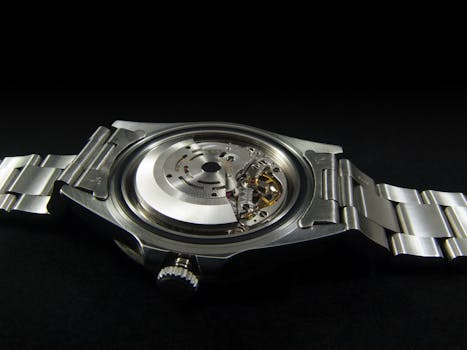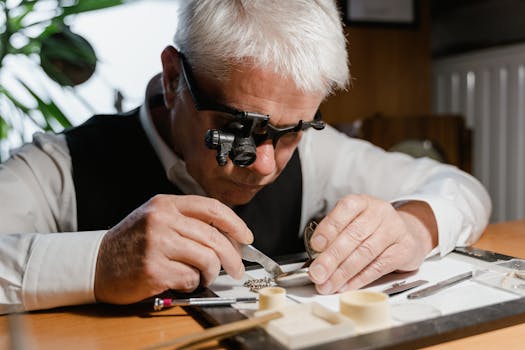The Future of Sustainable Watchmaking Practices
Takeaways: As the watch industry evolves, sustainability has become a driving force in design and production. This article delves into innovative materials, ethical production methods, and the integration of technology in creating eco-friendly timepieces. Discover how leading brands are pioneering sustainable practices and what the future holds for eco-conscious horology enthusiasts.
Understanding Sustainable Watchmaking

As consumers become increasingly aware of environmental issues, the demand for sustainable products is on the rise. In response, watchmakers are innovating to create timepieces that not only boast impeccable craftsmanship but also align with eco-conscious values. This shift is not merely a trend; it represents a fundamental change in how the industry operates.
Innovative Materials in Sustainable Watchmaking

For instance, many watchmakers are now using recycled metals, such as stainless steel and precious metals, which help reduce the demand for virgin materials. Furthermore, brands like Swatch have pioneered the use of bio-sourced materials, creating watches made from castor oil and other renewable resources.
Additionally, vegan leather and synthetic fabrics are gaining popularity in the watch strap market. These materials offer an ethical alternative to traditional leather, which often involves environmentally harmful tanning processes. Brands like Fossil and Bell & Ross are leading the charge by introducing timepieces that feature these eco-friendly materials.
Moreover, the concept of circular economy is being embraced, where watches are designed for longevity, repairability, and recyclability. This approach not only reduces waste but also encourages consumers to invest in quality timepieces that can be cherished for years.
Ethical Production Methods

Companies such as TAG Heuer and Citizen are actively working to ensure that their production processes do not exploit workers or harm the environment. This includes adhering to fair labor practices and ensuring that factories meet strict environmental standards.
Furthermore, some brands are investing in renewable energy sources for their manufacturing facilities. For example, Seiko has committed to reducing its carbon footprint by implementing solar power into its production processes. This not only decreases reliance on fossil fuels but also sets a precedent for other manufacturers in the industry.
The Role of Technology in Sustainable Practices

Additionally, smart technology is being integrated into watch design, promoting functionalities that encourage sustainability. Smartwatches, for example, can monitor user habits and promote energy-saving practices. By offering features like activity tracking, some smartwatches can motivate wearers to engage in more sustainable lifestyles.
Moreover, advancements in battery technology, such as solar-powered and kinetic watches, are reducing the need for disposable batteries, which often contribute to environmental waste. Brands like Citizen and Seiko are at the forefront of this movement, highlighting the importance of sustainable energy solutions in horology.
The Impact of Consumer Demand

Brands that prioritize sustainability are likely to attract a loyal customer base willing to invest in products that align with their values. This growing trend has led to the emergence of watch brands that focus exclusively on sustainability, such as Nordgreen and OMEGA’s Seamaster Aqua Terra collection, which emphasizes eco-friendly materials and ethical production methods.
In essence, the future of sustainable watchmaking is bright, driven by innovation, ethical practices, and an evolving consumer landscape. As the industry continues to adapt, it remains to be seen how far these practices will go, but one thing is clear: sustainability is not just an option; it’s becoming an essential element of modern watchmaking.






